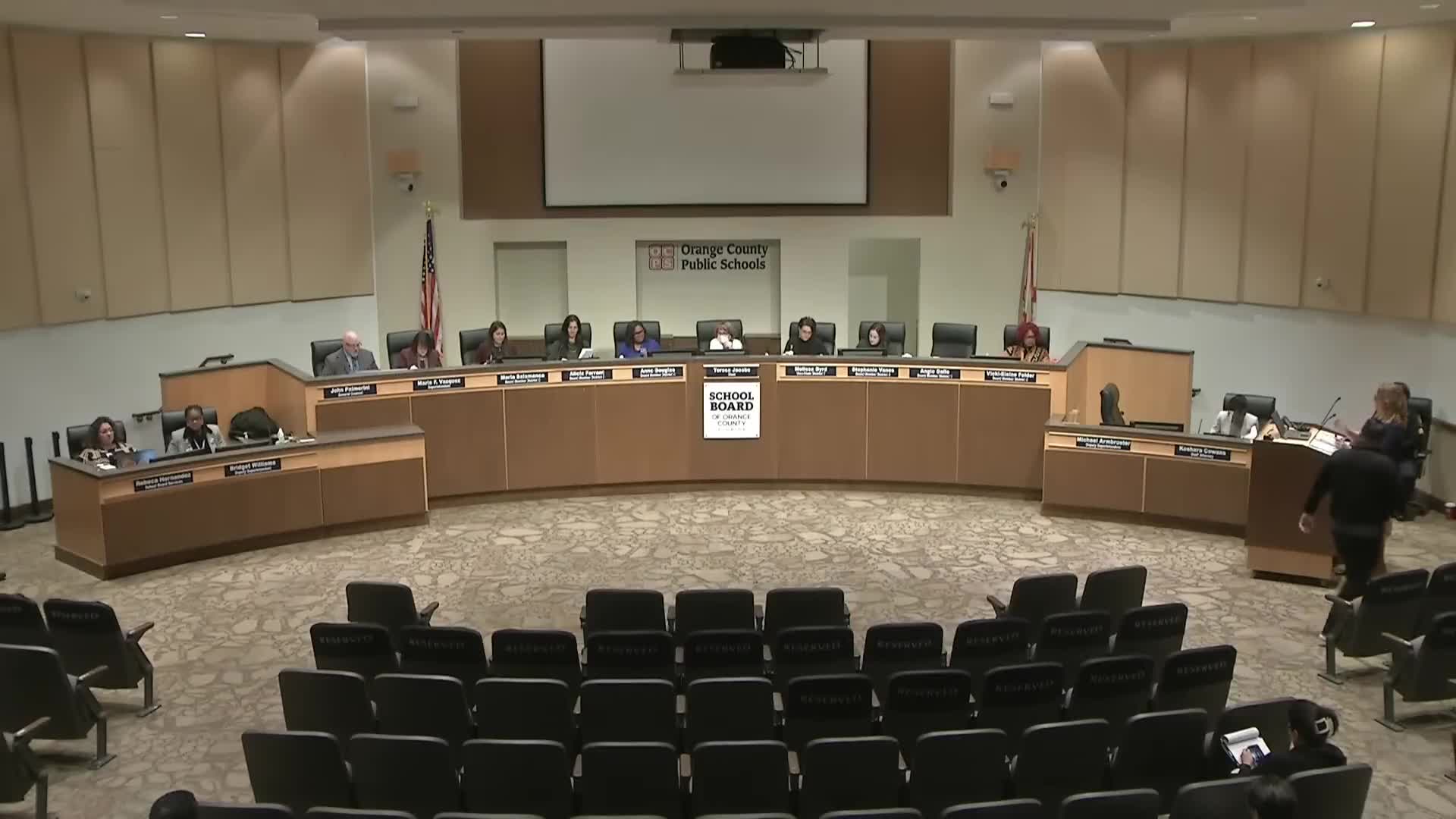Orange County Schools outlines Sustainability Plan 2030; board presses on electric-bus costs and charging needs
Get AI-powered insights, summaries, and transcripts
Subscribe
Summary
District sustainability lead presented Plan 2030 progress: 25 million pounds diverted from landfills, expanded composting, 104 schools on Duke Energy—s clean-energy subscription, and a pilot for electric vehicles — prompting board questions about bus range, charging costs and grant dependence.
Jennifer Fowler presented an update on Orange County Public Schools— Sustainability Plan 2030, detailing waste, energy, water and health targets and the district—s progress toward them. Fowler reported that in fiscal year 2025 OCPS "diverted 25,000,000 pounds of materials, achieving a 34.4% diversion rate from the landfill," and described steps to improve sorting, training and reinvestment of recycling rebates into schools.
On school food and wellness, Fowler said district nutrition sources include "91% of all food served to students is sourced from American growers, 15% is sourced locally," and that plant-forward menu offerings increased. She also said 17,365 personnel have completed Youth Mental Health First Aid training, representing 81.61% of the 21,278 personnel the state requires, exceeding the state—s 80% mandate.
Fowler outlined energy and transportation initiatives, noting OCPS joined Duke Energy—s Clean Energy Connection in 2022 and that "104 schools are powered by 100% renewable energy" through that subscription. The district is also piloting electric vehicles in its white fleet and has added electric school buses to transportation; currently electric buses make up about 5% of the fleet.
During board Q&A, transportation staff provided operational context and costs. Bill Wen said 60-kilowatt chargers at Pine Hills take about "3 to 4 hours to bring them back to 100%" and that higher-capacity 180-kilowatt stations are estimated at about "$90,000 per charging station" and would allow faster turnaround. He said current electric buses purchased cost about "$420,000 each" compared with diesel buses at about "$150,000," and that additional battery sets for extended range run about "$60,000 to $80,000." Wen cautioned that range (roughly 100 miles for many models) and driver shortages complicate scheduling and that some international-model buses with extra battery sets can reach 175—00 miles per charge.
Board members expressed support for sustainability education and composting programs while raising concerns about up-front infrastructure and maintenance costs, driver staffing, and how grant funding factors into purchases. Fowler and transportation staff said grants from the Florida Department of Environmental Protection and the U.S. Environmental Protection Agency helped offset initial costs and that further electric-bus expansion depends on available grant funding, charger installations and driver availability.
The superintendent thanked staff for the report and said the district will continue to track metrics and return with additional details as pilots progress.
